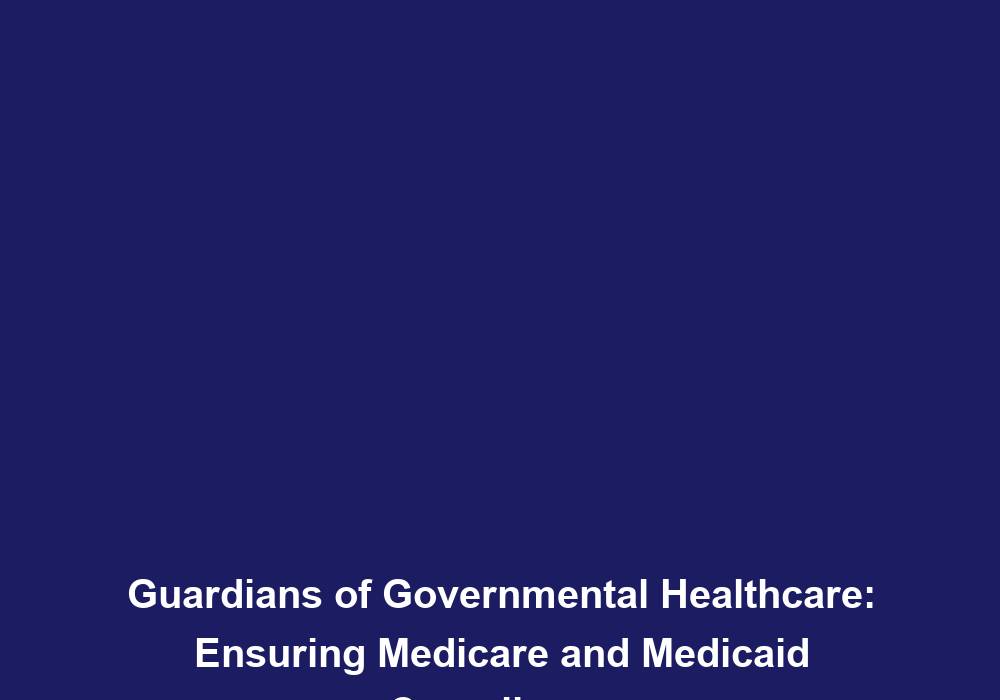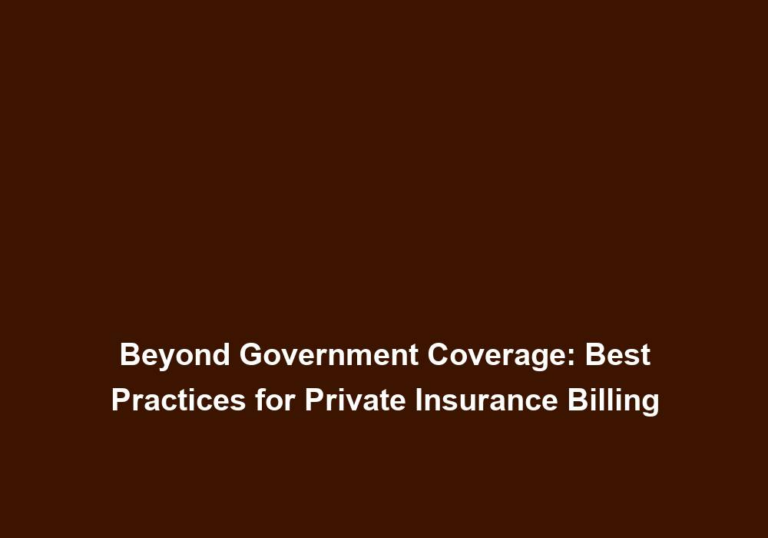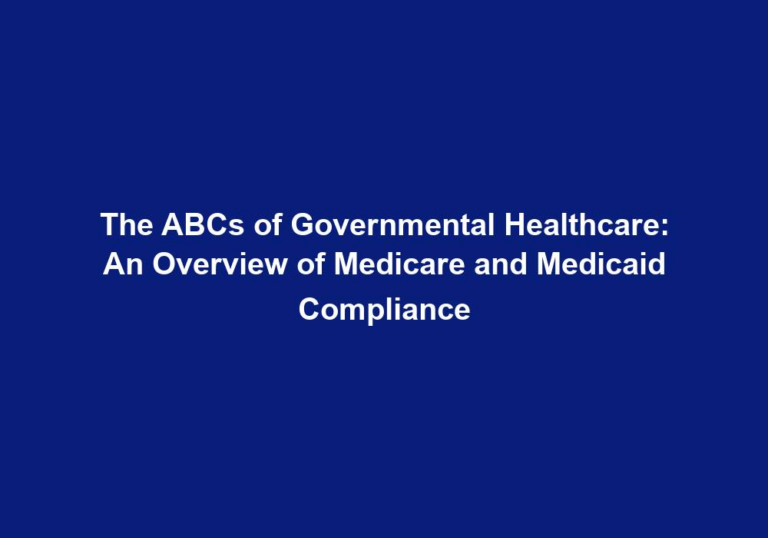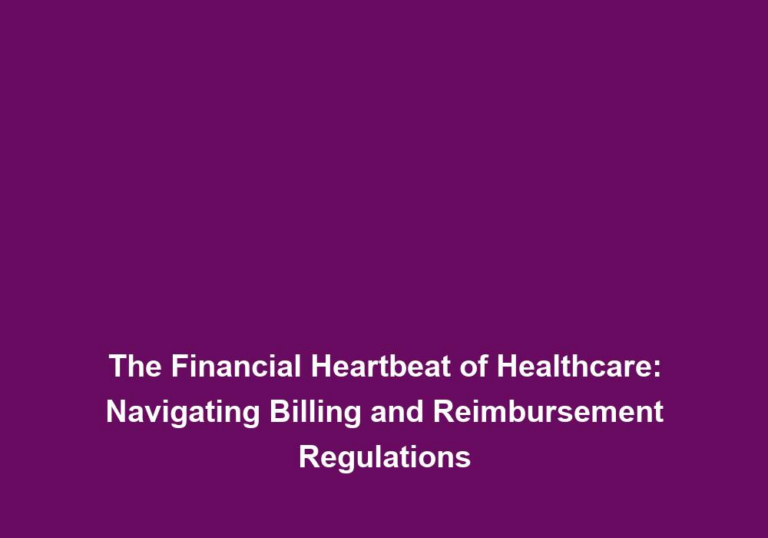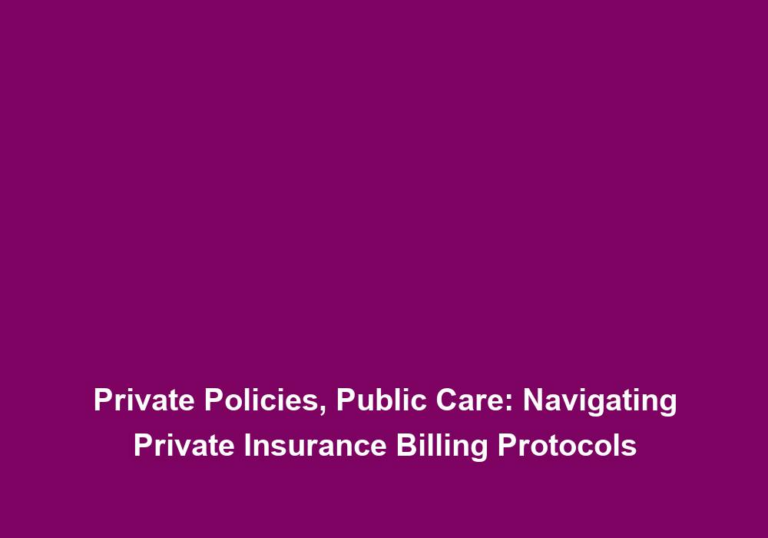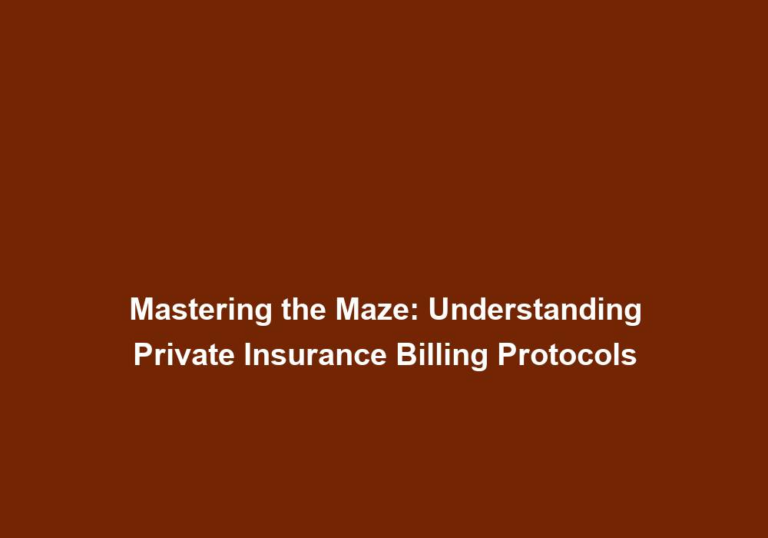Guardians of Governmental Healthcare: Ensuring Medicare and Medicaid Compliance
In the United States, Medicare and Medicaid are two vital government healthcare programs that provide medical coverage and assistance to millions of individuals. Medicare primarily caters to the elderly population, while Medicaid serves low-income individuals and families. As the guardians of these governmental healthcare initiatives, it is imperative to ensure strict compliance with the regulations and guidelines set forth by these programs. This article delves into the significance of Medicare and Medicaid compliance, exploring the various aspects and steps involved in upholding these crucial healthcare systems.
Understanding Medicare Compliance
Medicare compliance is of paramount importance to healthcare providers who offer services to Medicare beneficiaries. The program is administered by the Centers for Medicare and Medicaid Services (CMS), which sets forth rules and regulations for providers to follow. Failure to comply with these regulations could result in penalties, fines, and even exclusion from the Medicare program.
The Importance of Medicare Compliance
-
Ensuring Quality Patient Care: Medicare compliance is designed to ensure that healthcare providers deliver quality care to Medicare beneficiaries. Compliance measures aim to prevent fraud, abuse, and unnecessary medical procedures, thus safeguarding the well-being of patients.
-
Maintaining Program Integrity: By adhering to Medicare compliance guidelines, healthcare providers contribute to the overall integrity of the program. This helps in preserving the sustainability of Medicare and ensures its longevity.
-
Avoiding Legal Consequences: Non-compliance with Medicare regulations can lead to serious legal consequences, including civil and criminal penalties. It is crucial for healthcare providers to stay up-to-date with the evolving regulations and implement necessary measures to comply with them.
Steps to Achieve Medicare Compliance
-
Comprehensive Training and Education: Healthcare providers must invest in training and education programs for their staff members. This ensures that employees are well-informed about the latest compliance regulations and guidelines. Training sessions should cover topics such as fraud prevention, proper documentation, and billing practices.
-
Internal Auditing and Monitoring: Conducting regular internal audits is essential to identify any potential compliance issues. These audits help in detecting errors or discrepancies in medical documentation, coding, and billing processes. By addressing these issues promptly, healthcare providers can rectify errors and prevent non-compliance.
-
Implementation of Compliance Programs: Establishing a robust compliance program is crucial for healthcare providers. Such programs should include written policies and procedures, a designated compliance officer, and a system for reporting and investigating compliance concerns. Regular reviews and updates of the program are essential to keep pace with evolving regulations.
-
Ongoing Risk Assessment: Conducting regular risk assessments helps healthcare providers identify areas of vulnerability in their compliance practices. By identifying potential risks, providers can implement targeted measures to mitigate them and reduce the likelihood of non-compliance. It is important to constantly evaluate and adapt compliance strategies to ensure continued adherence to Medicare regulations.
-
Collaboration and Communication: Healthcare providers should actively engage with CMS and other relevant stakeholders to stay informed about changes in Medicare regulations. Building strong partnerships and open lines of communication can help providers navigate compliance challenges more effectively.
-
Utilizing Technology: Implementing advanced technological solutions such as electronic health records (EHR) and billing systems can streamline compliance processes. These tools can enhance accuracy, improve documentation, and facilitate easier monitoring of compliance activities.
The Significance of Medicaid Compliance
Medicaid, another vital government healthcare program, serves as a safety net for low-income individuals and families. Compliance with Medicaid regulations is crucial for healthcare providers who offer services to Medicaid beneficiaries. The program is jointly funded by the federal and state governments and administered by individual states. Non-compliance with Medicaid guidelines can result in financial penalties, exclusion from the program, and damage to a provider’s reputation.
Benefits of Medicaid Compliance
-
Ensuring Access to Healthcare Services: Medicaid compliance helps ensure that eligible individuals have access to necessary healthcare services. By complying with Medicaid regulations, healthcare providers contribute to the program’s goal of providing affordable healthcare to those in need.
-
Preventing Fraud and Abuse: Compliance measures within Medicaid help in preventing fraudulent activities and abuse of the system. By conducting thorough screenings, verifying patient eligibility, and adhering to proper billing practices, healthcare providers play a crucial role in maintaining the integrity of the Medicaid program.
-
Maintaining Financial Stability: Medicaid compliance is essential for healthcare providers to maintain financial stability. Non-compliance can result in financial penalties and exclusion from the program, leading to significant revenue loss. By complying with Medicaid regulations, providers can ensure a stable financial position while serving the vulnerable population.
Steps to Achieve Medicaid Compliance
-
Understanding State-Specific Requirements: Since Medicaid programs are administered by individual states, healthcare providers must thoroughly understand the specific requirements of the state(s) they operate in. Familiarizing themselves with the regulations and guidelines helps in ensuring compliance with state-specific Medicaid rules.
-
Proper Documentation and Billing Practices: Accurate and comprehensive documentation is crucial for Medicaid compliance. Healthcare providers should ensure that all patient information, services rendered, and billing details are properly documented. Proper coding and billing practices, adhering to Medicaid guidelines, are essential to avoid compliance issues.
-
Regular Staff Training and Education: Similar to Medicare compliance, ongoing training and education for staff members are essential for Medicaid compliance. Staff members must be aware of state-specific guidelines, eligibility criteria, and billing requirements to ensure accurate and compliant practices.
-
Auditing and Internal Controls: Conducting regular internal audits helps identify potential compliance gaps and errors. Providers should establish internal control measures to monitor adherence to Medicaid guidelines. These controls help in mitigating risks, rectifying errors, and ensuring compliance with the program’s regulations.
-
Collaboration with State Agencies: Maintaining open lines of communication and collaboration with state Medicaid agencies is crucial for staying informed about changes in regulations and guidelines. Regularly engaging with these agencies can help healthcare providers address compliance challenges and ensure ongoing adherence.
Conclusion
Medicare and Medicaid compliance are critical components of the U.S. healthcare system. Healthcare providers must prioritize compliance to ensure quality patient care, maintain program integrity, and avoid legal consequences. By following the steps outlined in this article, providers can be the guardians of governmental healthcare, ensuring that Medicare and Medicaid beneficiaries receive the care they deserve while upholding the integrity of these vital programs. Complying with Medicare and Medicaid regulations is not only a legal requirement but also a moral obligation to serve the healthcare needs of the vulnerable populations they cater to.
Note: The revised article has been formatted in markdown format.
“,10-Oct-23
Billing and Reimbursement

